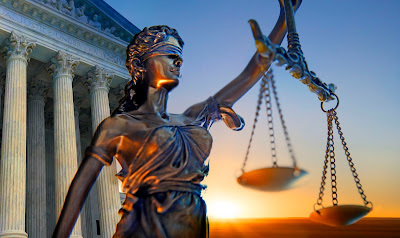Anonymous Tip Insufficient to Justify Traffic Stop
Can police stop a car when an anonymous caller to 911 says the driver of a particular vehicle was yelling at her kids and appeared to be intoxicated? The Michigan Supreme Court answered in the negative yesterday in People v Pagano.
The 911 caller, according to the officer's recollection of what dispatch said (the tape was not entered as evidence), said they were "concerned because she had ah children with her and she was yelling; appearing to be obnoxious; and appeared to be intoxicated um that was causing her behavior ah with the children. And then had left is why the caller thought she was intoxicated." The caller gave the license plate number, the make, model and color of the car and the direction the defendant was headed.
Thirty minutes later, a deputy found the car and followed the defendant, but did not make any independent observation of drunk driving or any civil infraction. The defendant was charged with OWI, Child Endangerment and Open Intox. After an evidentiary hearing, the trial court dismissed the case. The Huron County Circuit Court affirmed, but the Michigan Court of Appeals reversed, concluding that “the informant’s tip provided accurate details that were corroborated by the officer, making it sufficiently reliable, and also conveyed information related to contemporaneous and ongoing potential criminal activity."
The Supreme Court unanimously reversed (Justice Welch did not participate.) Justice Bernstein's opinion took issue with the fact that the caller pointed to no objective fact from which to conclude that the driver was actually intoxicated. Many people are obnoxious, though not drunk. Many people who are not intoxicated yell at their kids. The question came down to what weight to give an anonymous tip, and the Court looked to US Supreme Court precedent for assistance. In Florida v J.L., the Court opined that an anonymous tip can provide reasonable suspicion, but only if the details of the tip are sufficiently corroborated to give credibility to the tipster. However, identifying a person and place is not enough. An anonymous tip must also demonstrate reliability in its assertion of criminality. Here, the information on the record was only that the driver appeared to be intoxicated, and nothing more from which to conclude why the caller believed the person was intoxicated.
The most interesting part of the decision, in my opinion, is Justice Viviano's concurrence (joined by Justice McCormack), where he posits that the Supreme Court, should consider, in some future case, concluding that the Michigan Constitution provides more protection to individuals in cases where police rely on anonymous calls to justify stopping investigative action, like the case here. He argued that Michigan is not bound by federal interpretations of the United States Constitution, even where the text of the two constitutions is identical. Justice Viviano relied heavily on Justice Scalia's dissent in Navarette v California, and echoed his concern that the majority there had done nothing more than “served up a freedom-destroying cocktail . . . .” Especially in today's technologically advancing world, 911 callers have developed methods of disguising their caller ID numbers (known as spoofing) and then making false accusations so that police will investigate and disrupt the lives of innocent people. Justice Viviano's opinion is a great read.
Ms. Pagano was represented by Julienne Ferris of Bad Axe. The People were represented on appeal by David J. Wallace of Harbor Beach, Michigan.




Comments
Post a Comment